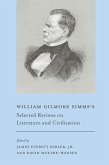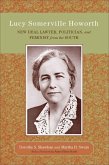In 1737, Englishman William Stephens (1671--1753) sailed to Georgia to serve as colonial secretary to its British Board of Trustees. His lucid reports on the condition of Georgia deeply impressed the board, which eventually appointed him president of the troubled colony. The elderly Stephens adroitly shepherded the fledgling settlement over the following decade through a precarious and tumultuous period. Though Stephens's actions proved critical to the survival of colonial Georgia, historians have largely overlooked his life story.
In William Stephens: Georgia's Forgotten Founder, Julie Anne Sweet not only fills that gap, she uses the story of Stephens's life as an opportunity to illuminate vital details in the history of early Georgia. She opens by exploring the relationship between Stephens and the British Board of Trustees, demonstrating Stephens's absolute loyalty to his employer. He carried out orders without question, making numerous enemies within the colony as a consequence. By closely examining Stephens's interactions with various political officials and adversaries, Sweet highlights the complicated nature of colonial administration. She also examines Stephens's involvement with international diplomacy and military defense during one of Britain's many wars with Spain and his efforts to maintain good relations with nearby Indian nations.
Sweet complements her focus on the public aspects of Stephens's career with a careful analysis of his life beyond politics, including his family, his agricultural endeavors, and his religious convictions. As a result, her captivating intellectual biography of Stephens also provides a deeper and more nuanced understanding of the political and social forces at work in colonial Georgia.
In William Stephens: Georgia's Forgotten Founder, Julie Anne Sweet not only fills that gap, she uses the story of Stephens's life as an opportunity to illuminate vital details in the history of early Georgia. She opens by exploring the relationship between Stephens and the British Board of Trustees, demonstrating Stephens's absolute loyalty to his employer. He carried out orders without question, making numerous enemies within the colony as a consequence. By closely examining Stephens's interactions with various political officials and adversaries, Sweet highlights the complicated nature of colonial administration. She also examines Stephens's involvement with international diplomacy and military defense during one of Britain's many wars with Spain and his efforts to maintain good relations with nearby Indian nations.
Sweet complements her focus on the public aspects of Stephens's career with a careful analysis of his life beyond politics, including his family, his agricultural endeavors, and his religious convictions. As a result, her captivating intellectual biography of Stephens also provides a deeper and more nuanced understanding of the political and social forces at work in colonial Georgia.
Dieser Download kann aus rechtlichen Gründen nur mit Rechnungsadresse in A, D ausgeliefert werden.









